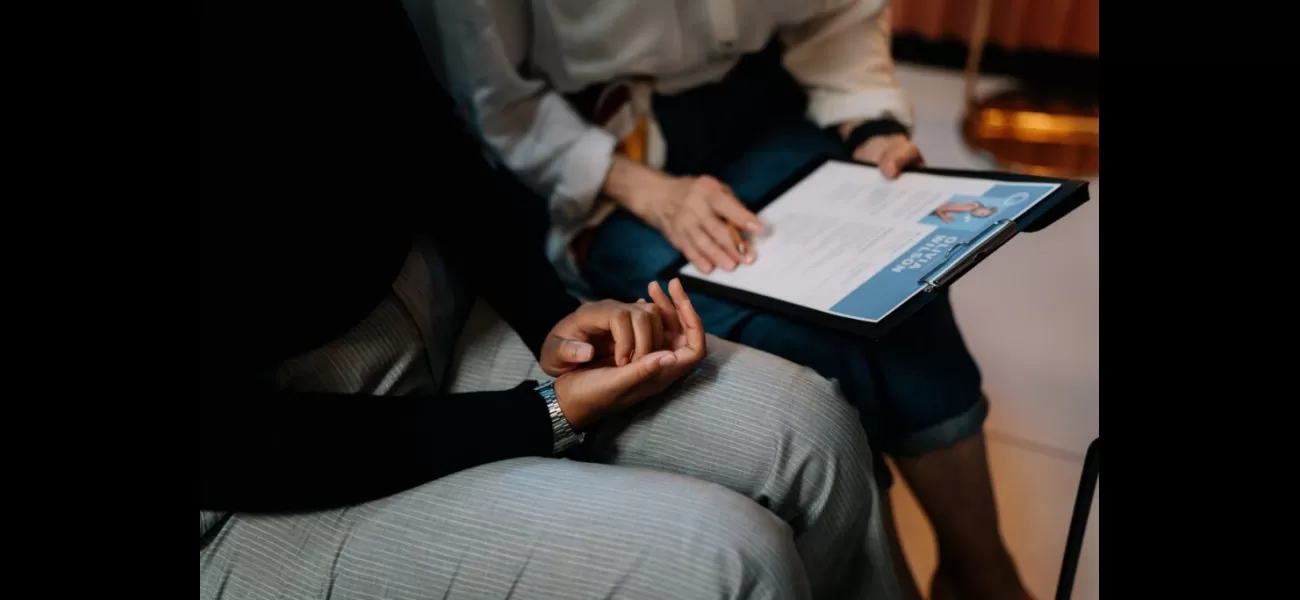Black unemployment increases while overall unemployment decreases.
Black unemployment numbers have been increasing since December 2023, but experts are not yet alarmed by the current levels.
April 6th 2024.

After the Department of Labor released its jobs report for March, the data showed an increase in the unemployment rate for Black Americans. This rise in numbers follows a steady increase in Black unemployment since December 2023, but experts are not yet sounding the alarm. According to CNBC, the unemployment rate for Black Americans in March was 6.4%, up from 5.4% in February. This is in contrast to the unemployment rate for white Americans, which was 3.8% in March.
The numbers for Black women also saw a notable increase, contributing to the overall rise in unemployment among Black Americans. Their unemployment rate rose to 5.6%, a significant jump from 4.4% in February. On the other hand, the numbers for Black men remained steady but still higher than desired. In March, their unemployment rate was 6.2%, slightly up from 6.1% the previous month.
While these numbers are concerning, senior economist Elise Gould from the Economic Policy Institute believes it is not yet a cause for alarm. She explains that unemployment rates by race and sex can fluctuate from month to month. The current ratio of Black unemployment compared to white unemployment is 1.55 to one, according to data from the Bureau of Labor Statistics. This is a concerning trend, but not yet alarming. As Gould puts it, "It's something we need to watch closely in the coming months." She also notes that the increasing numbers can be attributed to more people actively looking for work, but not all of them being able to find employment.
In 2022, Neel Kashkari, president and CEO of the Federal Reserve Bank of Minneapolis, spoke about the persistent gap in unemployment between Black and white Americans on Vox's Today Explained podcast. He referred to it as the "2X problem," where Black Americans consistently face twice the unemployment compared to white Americans, regardless of the state of the economy. This disparity is pervasive and must be addressed.
Valerie Wilson, program director at the Economic Policy Institute, also highlights the lack of employment equity as a racial and economic justice issue. She explains, "There is no other relationship in the labor market that is this consistent and stable. Employment equity is essential for racial and economic justice because work is essential." Wilson emphasizes the importance of employment as a means for individuals to provide for themselves and their families.
One explanation for the continued disparities in employment among Black workers is the saying, "Last one hired, first one fired." Christian Weller, a professor at the University of Massachusetts at Boston who studies racial disparities in employment, elaborates on this. He believes that discrimination still exists, and while employers may be more willing to hire Black workers now, the ratio of Black to white unemployment is still cause for concern. As Weller puts it, "You have to squint to see the ratio coming down."
In recent news, the number of unemployment benefit applications in the United States has been declining, indicating a robust job market. This is a positive sign for the overall economy, but the persistent gap in employment between Black and white Americans remains a pressing issue that needs to be addressed.
The numbers for Black women also saw a notable increase, contributing to the overall rise in unemployment among Black Americans. Their unemployment rate rose to 5.6%, a significant jump from 4.4% in February. On the other hand, the numbers for Black men remained steady but still higher than desired. In March, their unemployment rate was 6.2%, slightly up from 6.1% the previous month.
While these numbers are concerning, senior economist Elise Gould from the Economic Policy Institute believes it is not yet a cause for alarm. She explains that unemployment rates by race and sex can fluctuate from month to month. The current ratio of Black unemployment compared to white unemployment is 1.55 to one, according to data from the Bureau of Labor Statistics. This is a concerning trend, but not yet alarming. As Gould puts it, "It's something we need to watch closely in the coming months." She also notes that the increasing numbers can be attributed to more people actively looking for work, but not all of them being able to find employment.
In 2022, Neel Kashkari, president and CEO of the Federal Reserve Bank of Minneapolis, spoke about the persistent gap in unemployment between Black and white Americans on Vox's Today Explained podcast. He referred to it as the "2X problem," where Black Americans consistently face twice the unemployment compared to white Americans, regardless of the state of the economy. This disparity is pervasive and must be addressed.
Valerie Wilson, program director at the Economic Policy Institute, also highlights the lack of employment equity as a racial and economic justice issue. She explains, "There is no other relationship in the labor market that is this consistent and stable. Employment equity is essential for racial and economic justice because work is essential." Wilson emphasizes the importance of employment as a means for individuals to provide for themselves and their families.
One explanation for the continued disparities in employment among Black workers is the saying, "Last one hired, first one fired." Christian Weller, a professor at the University of Massachusetts at Boston who studies racial disparities in employment, elaborates on this. He believes that discrimination still exists, and while employers may be more willing to hire Black workers now, the ratio of Black to white unemployment is still cause for concern. As Weller puts it, "You have to squint to see the ratio coming down."
In recent news, the number of unemployment benefit applications in the United States has been declining, indicating a robust job market. This is a positive sign for the overall economy, but the persistent gap in employment between Black and white Americans remains a pressing issue that needs to be addressed.
[This article has been trending online recently and has been generated with AI. Your feed is customized.]
[Generative AI is experimental.]
0
0
Submit Comment





